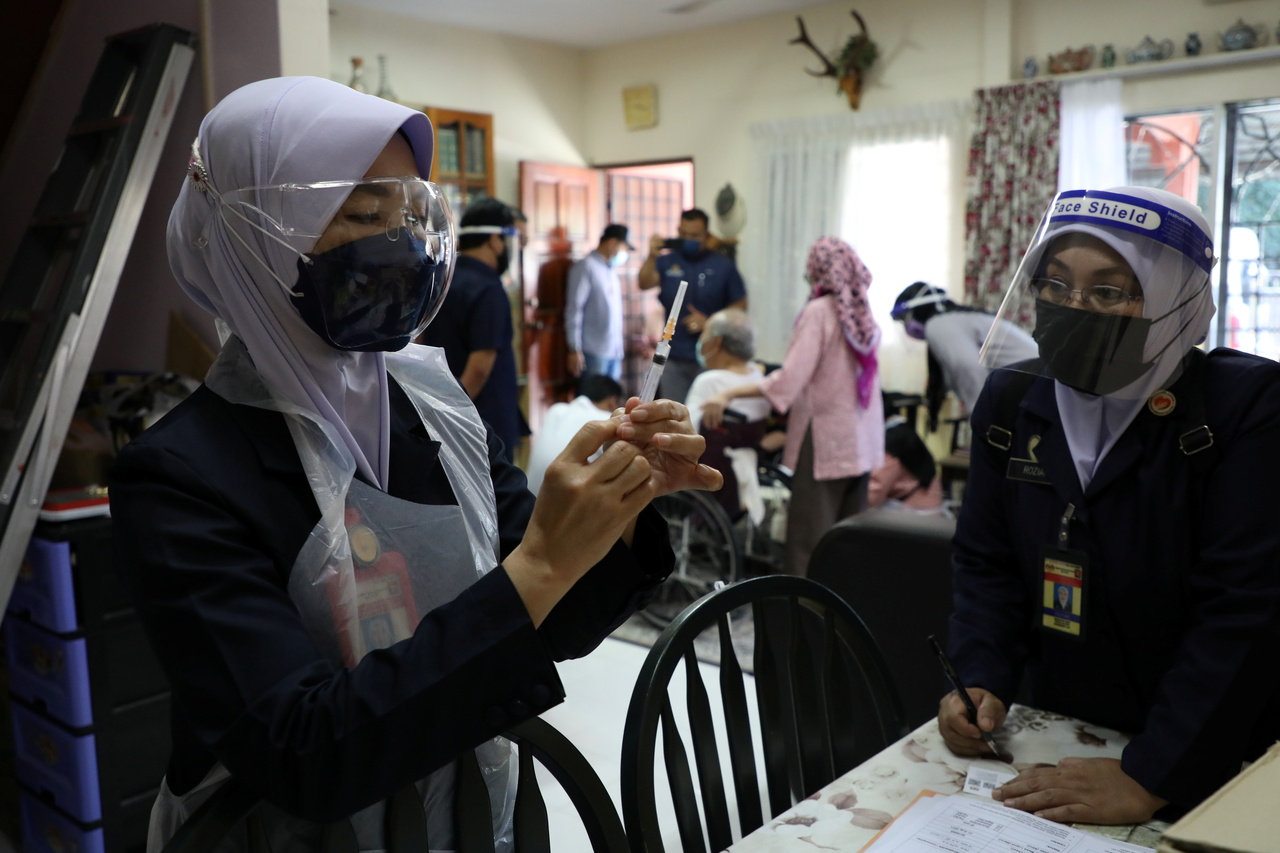Malaysia denies efficacy issues led to Sinovac Covid-19 vaccine being phased out
Sign up now: Get insights on the biggest stories in Malaysia

Malaysia had said that it will stop administering the Sinovac vaccine beyond its current stocks.
PHOTO: REUTERS
KUALA LUMPUR - Malaysia has denied that a move to phase out the administering of the Chinese-made Sinovac vaccine is due to efficacy issues, saying it will order more in the future in the event of shortages.
The delivery of the current order for 12 million Sinovac doses, covering nearly a fifth of the population, will be completed by the end of this month, coordinating minister for immunisation Khairy Jamaluddin, said on Friday (July 16).
The government is purchasing an additional three million doses, which will be delivered by end-July or early-August, he said, adding that Sinovac would still be available for those at risk of anaphylaxis as well as through private vaccinations.
"It has nothing to do with Sinovac's efficacy. There has been a lot of speculation on this. It is because we will be receiving our entire delivery by the end of July and August," Mr Khairy told a news conference.
The order of 12 million doses will be fully distributed by July 21, earlier than scheduled, because the government had asked for it to be brought forward to speed up vaccinations, he said.
The announcement to stop using Sinovac's vaccine, which is formulated from an inactivated virus, comes amid concern over its efficacy against new and more contagious variants of the coronavirus.
This week, Thailand said it would use the AstraZeneca vaccine as a second dose for those who received the Sinovac shot, while Indonesia is considering a booster shot for those who completed the two-dose Sinovac course.
Other vaccines approved in Malaysia include AstraZeneca, CanSino Biologic and Sinopharm from China as well as the Janssen vaccine of Johnson & Johnson.
Malaysia said on Thursday that it will stop administering the Sinovac vaccine beyond its current stocks, as it has sufficient supplies of the Pfizer-BioNTech vaccine to cover 70 per cent of the population.
Mr Khairy said vaccination efforts in the Klang Valley would be intensified to ensure that every adult in the area receives their first dose by Aug 1.
As at Thursday, 3.5 million adults out of 6.1 million in the capital, Kuala Lumpur, and in the state of Selangor have had their first dose.
The Klang Valley is now the epicentre of the pandemic in the country. Selangor recorded 5,512 cases on Friday while Kuala Lumpur accounted for 1,542 out of 12,541 cases nationwide.
A total of 17.8 per cent of the country's population has received two doses, and 38.6 per cent at least one dose, said Mr Khairy.
Mr Khairy, who had himself received the Sinovac vaccine earlier this year, also said the government would monitor real-world data on whether recipients should be given a booster shot with either the Pfizer-BioNTech or the AstraZeneca vaccines.
He added that Malaysia was on track to vaccinate 80 per cent of its population by December.


